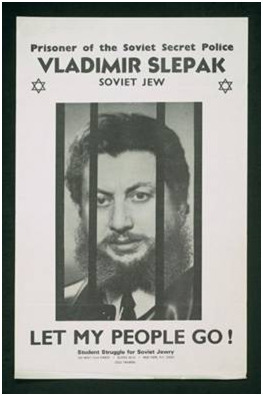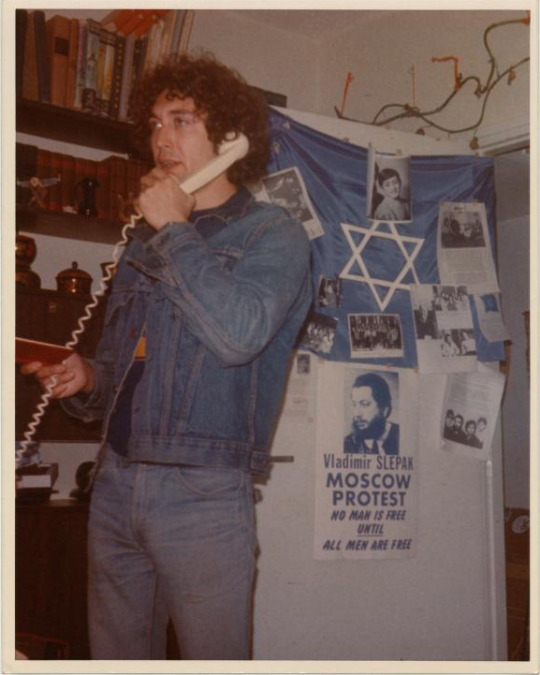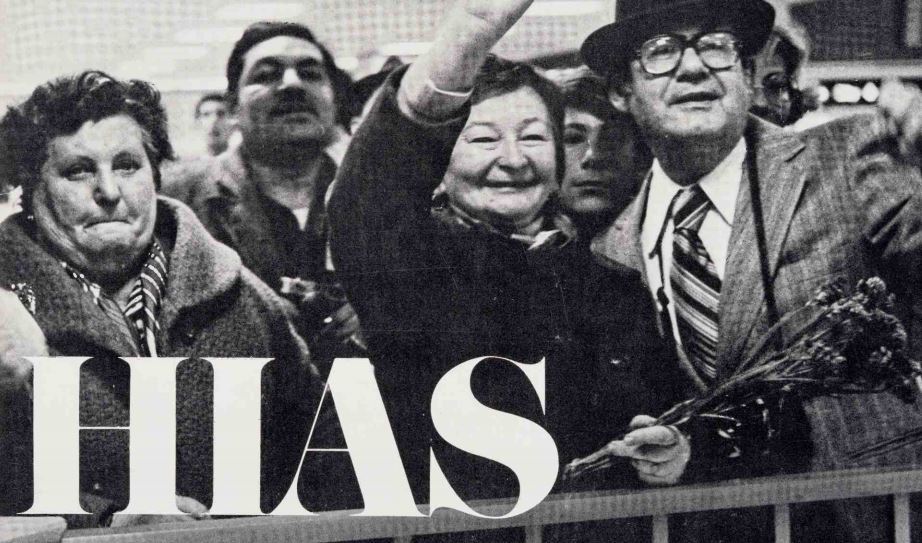by Andrey Filimonov
Listen to digital audio online here

Prisoner of the Soviet Secret Police: Vladimir Slepak, poster by the Student Struggle for Soviet Jewry. American Soviet Jewry Movement Posters and Ephemera Collection, I-566, American Jewish Historical Society.

Son of Vladimir Slepak, Alexander Slepak. American Soviet Jewry Movement Photographs Collection, I-495, American Jewish Historical Society.
Thanks to generous support from the National Historical Publications & Records Commission (NHPRC), the Center for Jewish History has completed the digitization of more than 75,100 images and 500 audio hours from the American Jewish Historical Society’s Soviet Jewry collections. For more information on the project, click here.
One highlight from the digitized collections is an audio recording of an event that took place in March of 1987 on the lawn of the U.S. Capitol. The event was intended to call attention to the hunger strike held by the son of the prominent Soviet Jewish activist and Prisoner of Conscience, Vladimir Slepak. The 35-year-old Temple medical student Alexander Slepak conducted a 17-day hunger strike to protest the 17-year refusal of the Soviet authorities to allow his parents to leave for Israel. In the recording Alexander delivers a powerful speech, urging the release of his father and all Refuseniks: “My father fought for many years not only for himself but for thousands of others… Vladimir Slepak has served his term… there is enough suffering.” The other speakers, supporting Alexander’s cause, include the leaders of the Union of Councils for Soviet Jews, Micah Naftalin and Mark Levin, as well as the U.S. Ambassador to the UN Jeane Kirkpatrick and the Nobel Laureate writer Elie Wiesel, both of whom deliver stirring remarks of deep concern about the well-being of Vladimir Slepak and the rest of the separated Jewish families. They make urgent appeals to the Soviet and U.S. governments to take decisive steps to end the suffering of the Soviet Jews. The format of the event is a great example of the unity of grassroots activism, represented by the Union of Councils, the U.S. elected officials, and the high profile public figures in their efforts on behalf of the Jews in the Soviet Union.
Andrey Filimonov is an archivist at the Center for Jewish History.


